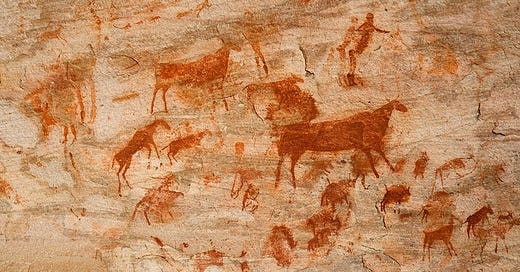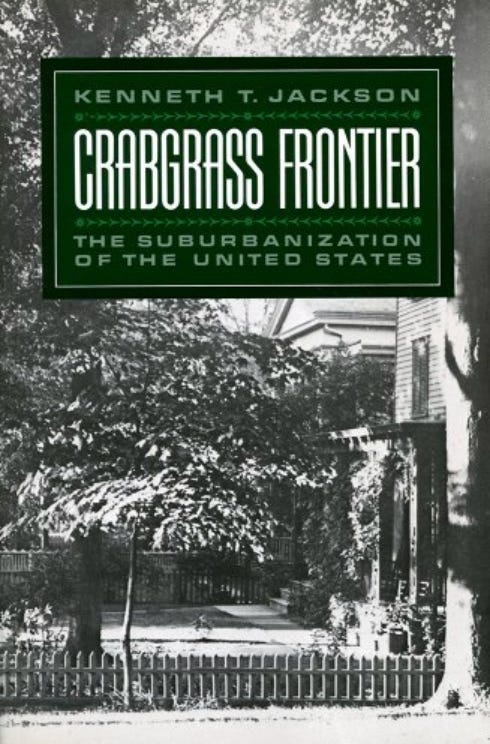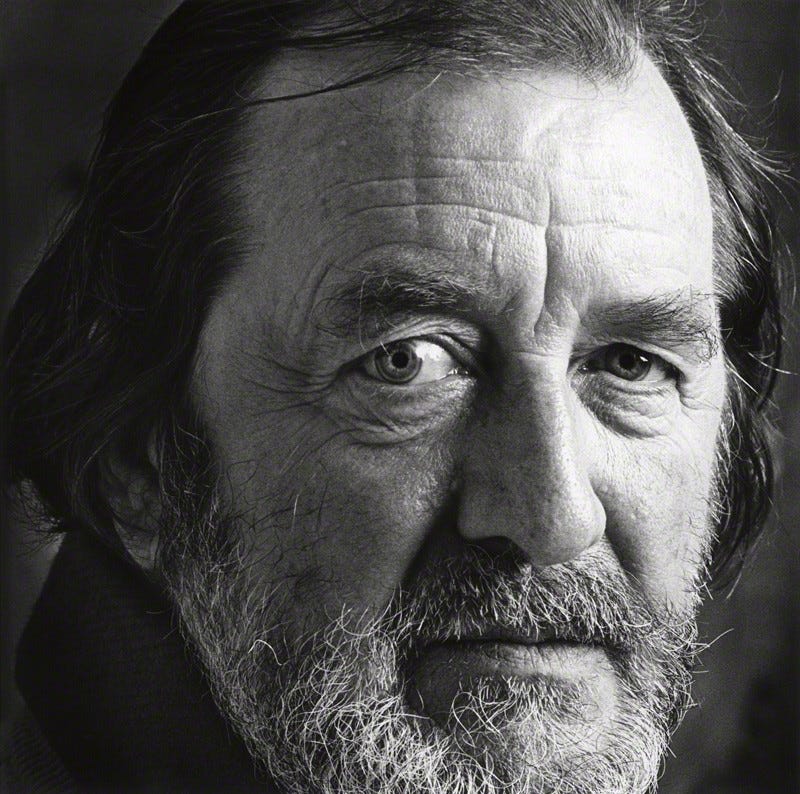NBN Newsletter #10
Featuring a curated playlist about sociolinguistics and an interview with Professor Zachary M. Schrag
Sociolinguistics
Language is a uniquely human form of communication, notably different from the ways in which our animal kin ‘talk’ to one another. Much like the DNA that binds the animal kingdom together, language is a complex system that can create a functionally infinite series of combinations. So, it is no surprise that the variations found within language are similarly diverse.
The study of these differences in a social context relies on a connection between language and culture — a good example being the tendency for groups of people (based upon age, origin, location, or countless other variables) to speak more like one another than those not part of their group. Examining the causes, uses, and results of this diversity allow us to not only better understand the structure of language but also our relationship to communication itself and our relationships with each other.
This week, we feature episodes on the study of sociolinguistics, language and identity, the history of language, and more.
Playlist:
Margaret Thomas, Fifty Key Thinkers on Language and Linguistics (Routledge, 2011)
Kamran Khan, Becoming a Citizen: Linguistic Trials and Negotiations in the UK (Bloomsbury, 2019)
Brigid O'Keeffe, Esperanto and Languages of Internationalism in Revolutionary Russia (Bloomsbury, 2021)
Lucía Fernández-Amaya, A Linguistic Overview of Whatsapp Communication (Brill, 2022)
Joan Turner, On Writtenness: The Cultural Politics of Academic Writing (Bloomsbury Academic 2018)
Daniel Oberhaus, Extraterrestrial Languages (MIT Press, 2020)
Ingrid Piller, Linguistic Diversity and Social Justice: An Introduction to Applied Sociolinguistics (Oxford University Press, 2016)
David Adger, Language Unlimited: The Science Behind Our Most Creative Power (Oxford University Press, 2019)
Chun-Yi Peng, Mediatized Taiwanese Mandarin: Popular Culture, Masculinity, and Social Perceptions (Springer, 2021)
Alex Poole, Learning a Foreign Language: Understanding the Fundamentals of Linguistics (Rowman and Littlefield, 2020)
Peter Trudgill, Sociolinguistic Typology: Social Determinants of Linguistic Complexity (Oxford University Press, 2011)
Lewis Glinert, The Story of Hebrew (Princeton University Press, 2017)
Asya Pereltsvaig and Martin Lewis, The Indo-European Controversy: Facts and Fallacies in Historical Linguistics (Cambridge University Press, 2015)
Scholarly Sources
Zachary M. Schrag is Professor of History and the Director of the MA Program in History at George Mason University.
Q: What are you reading right now?
A: In print, I just finished Peter Norton’s Autonorama: The Illusory Promise of High-Tech Driving. It’s a great example of Jim Grossman’s dictum: “Everything Has a History.” In this case, the prophecy of self-driving—that in just a few years you will be able to read a newspaper while your car safely navigates the road—turns out to be decades old.
My current audiobook is Hattiesburg: An American City in Black and White by William Sturkey. Ten years ago, you would be unlikely to find an audio version of a scholarly, university press history monograph like this, and I’m so glad the format keeps expanding, allowing me to learn while I clean the kitchen.
My current favorite comic book series is 20th Century Men by Deniz Camp and Stipan Morian, which I’m hoping can fill the hole in my heart left when Manhattan Projects finished its run.
Q: What is your favorite book or essay to assign to give to people and why?
A: For my graduate seminar in postwar United States political history, I rely on Landon R.Y. Storrs’ The Second Red Scare and the Unmaking of the New Deal Left, and I’ve also recommended it to friends and family. Storrs both bridges the New Deal and Great Society eras and connects policy history to culture wars and even family life. Her book may be the best answer I’ve found to Werner Sombart’s question, “why is there no socialism in the United States?” It’s also quite thoughtful about addressing distortions and gaps in the historical record.
Q: Is there a book you read as a student that had a particularly profound impact on your trajectory as a scholar?
The obvious answer is Crabgrass Frontier by my doctoral advisor, Ken Jackson. On one level, it serves as a magnificent synthesis of the history of American cities and suburbs over a stretch of nearly two centuries. On a second level, though, it emphasizes just one kind of suburb: middle-class, white, open-lawn, American, and auto-centric. What about working-class white suburbs? African American suburbs? The regrowth of trees? The export of the US homeownership model abroad? And the effort to serve the suburbs with mass transit? Ken welcomed these questions, all of which animated dissertations he supervised, including mine. These works serve as reminders that while historians occasionally must correct previous accounts of the past, they more often expand and complicate those accounts without denying their value.
Q: Which deceased writer would you most like to meet and why?
A: Robert Bolt, who wrote the screenplays for Lawrence of Arabia, Doctor Zhivago, and A Man for All Seasons, took complex historical situations and distilled them into a few characters, scenes, and lines of dialog. Historians can’t take as much license with the past as Bolt did, but I’d be interested to hear his advice for us as we try to tell coherent stories about deep, messy truths. I understand the criticism of Lawrence of Arabia as a white-savior film since the first half is just that. But I think critics underrate Bolt’s efforts, in the second half, to derail the myth presented before the intermission. “A man who tells lies, like me, merely hides the truth,” Mr. Dryden tells Lawrence. “But a man who tells half-lies has forgotten where he put it.”
Q: What's the best book you've read in the past year?
A: In 2022, I enjoyed reading and teaching JoAnne Yates and Craig Murphy’s Engineering Rules: Global Standard Setting since 1880. I chose it primarily as a counterweight to James C. Scott’s Seeing Like a State: How Certain Schemes to Improve the Human Condition Have Failed, and it succeeded in that role. Yates and Murphy remind us that certain other schemes to improve the human condition have succeeded (and in a somewhat democratic manner). Moreover, as my seminar progressed, and students kept referring back to the book, I found that it was doing additional work helping us understand the work and values of engineers.
Q: Have you seen any films, documentaries, or museum exhibitions that left an impression on you recently?
A: This winter break I finally made it to the National Museum of the United States Army, which opened two years ago, during the pandemic. Unsurprisingly, much of the space is devoted to combat arms and major wars, but I was most intrigued by the Army and Society Gallery, which tells stories of engineering, medicine, communication, response to civil disorder, and other Army functions. Having read Engineering Rules, I was especially taken with the World War I-era Standard B Liberty Truck, which exemplifies the attraction of standard-setting that is part of the Yates and Murphy story.
Q: What do you plan on reading next?
A: I am a big fan of Beverly Gage’s work, so I’m looking forward to G-Man: J. Edgar Hoover and the Making of the American Century. That’s over 800 pages or 36 hours as an audiobook, so I need to be sure I’m in the right mood before I commit.
New Books, Links, & Other Things
Betty S. Lai, The Grant Writing Guide: A Road Map for Scholars (Princeton UP, 2023)
Sandra C. Greer, Chemistry for Cooks: An Introduction to the Science of Cooking (MIT Press, 2023)
Francesco Guala, Understanding Institutions: The Science and Philosophy of Living Together (Princeton UP, 2023)
Shadi Bartsch, Plato Goes to China: The Greek Classics and Chinese Nationalism (Princeton UP, 2023)
Olivier Blanchard, Fiscal Policy under Low Interest Rates (MIT Press, 2023)
Kaya Şahin, Peerless among Princes: The Life and Times of Sultan Süleyman (Oxford UP, 2023)
(If you’ve just finished an exceptionally engrossing book, listened to a great NBN episode, discovered a new podcast, or stumbled across an interesting website, please email caleb@newbooksnetwork.com)











